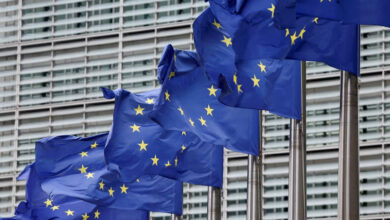
Deputy Minister of Tourism Ghada Shalaby announced that Egypt is looking for new routes to attract tourists, after the conflict between Russia and Ukraine led to stopping trips from the two most important and largest markets for Egyptian tourism.
Among the options is to transfer Russian tourists to Egypt through a third country, such as Turkey, if sanctions allow.
Shalaby added that during the coming period Egypt will work more on the markets of the Arab Gulf and Western Europe, such as Germany, France, Italy, UK and Hungary.
In addition, the ministry is working with the Ministry of Civil Aviation to study options to reach distant markets such as Southeast Asia and Latin America.
The negative economic effects of the Russian-Ukrainian war on European tourism movement will extend from one to three years from the date this war stopped, Ali Ghoneim, a member of the General Assembly of the Egyptian Federation of Tourist Chambers, said.
For the citizens of the two warring countries, the negative impact will extend for three years until the situation recovers, he added.
As for neighboring countries, the negative effects may be felt for up to two years, while the rest of the European countries far from the conflict area will be affected for about a year, he said.
Ghoneim warned that if the conflict develops and the war continues for long periods and spreads to other countries, the economic consequences on the tourism sector in the whole world will be devastating.
The Egyptian tourism sector during the past period has been accustomed to working under crises, such as the Luxor incident and the coronavirus pandemic, which gave the sector great experience and flexibility.
But this time the blow was severe, because Egypt lost the main market that supplies about 80 percent of the volume of tourists, he said.
The current situation of the Egyptian tourism sector requires two things: the first is the preservation and maintenance of tourist facilities, as well as the maintenance of trained workers, and the need to search for areas far from the focus of the conflict and less affected by what is happening in Europe, such as Latin America, Australia, and Southeast Asia, to attract more tourists.
According to Ghoneim these regions are valuable not for bringing in large numbers, but through higher spending rates that compensate for part of the losses of the European market.
Working in these markets needs a two-pronged strategy – joint marketing with neighboring countries such as Jordan, Turkey, Cyprus, Greece, Spain and Italy, so that the promotion and marketing in these far countries is for three or four countries, due to the distance tourists from these countries will have to cut.
He explained that this would allow them to visit three or four countries in one tour.
The second aspect is the need to find alliances between airlines or codeshares.
For example, companies such as EgyptAir, Turkish Airlines, Qatar and the Emirates airlines can work with code sharing to travel to these countries, because marketing and airlines are always related to each other, because it is not possible to do marketing for a region that no airlines fly to.
A member of the Tourism Investors Association in South Sinai Atef Abdel Latif, said in press statements that the tourism sector, both governmental and private, began targeting new markets after the outbreak of the Russian-Ukrainian war, which led to a complete halt of the tourist movement from Ukraine to Egypt, and a decline in the flow of Russian tourists.
The most important countries that will be targeted during the coming period are China, India and South Korea, in addition to Arab countries and Latin American countries, given that these markets are far from the scope of the ongoing war, and were not as impacted economically compared to European countries.
Egypt thus needs to speed up large promotional campaigns to target tourists from those markets during the upcoming summer season, taking into account air traffic in cooperation with Egyptian companies and Arab airlines to facilitate the arrival of tourists to Egypt from these distant countries, especially from Southeast Asian countries.
He stressed the importance of Arab tourism to Egypt during the next stage, given that the Arab tourist is one of those with high spending, so they would be able to compensate for the relative decline in the tourism revenues.




